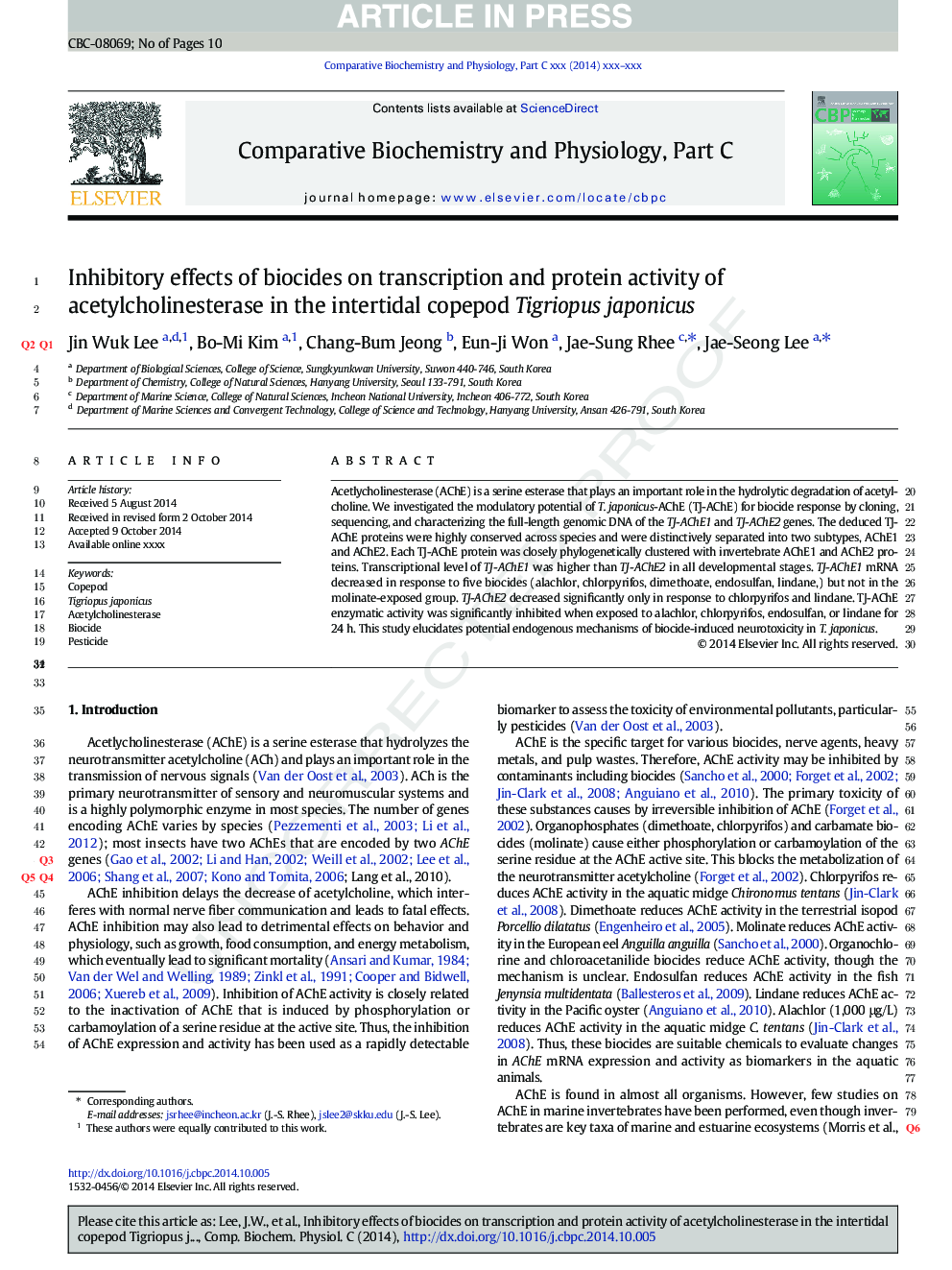| Article ID | Journal | Published Year | Pages | File Type |
|---|---|---|---|---|
| 8319129 | Comparative Biochemistry and Physiology Part C: Toxicology & Pharmacology | 2015 | 10 Pages |
Abstract
Acetlycholinesterase (AChE) is a serine esterase that plays an important role in the hydrolytic degradation of acetylcholine. We investigated the modulatory potential of T. japonicus-AChE (TJ-AChE) for biocide response by cloning, sequencing, and characterizing the full-length genomic DNA of the TJ-AChE1 and TJ-AChE2 genes. The deduced TJ-AChE proteins were highly conserved across species and were distinctively separated into two subtypes, AChE1 and AChE2. Each TJ-AChE protein was closely phylogenetically clustered with invertebrate AChE1 and AChE2 proteins. Transcriptional level of TJ-AChE1 was higher than TJ-AChE2 in all developmental stages. TJ-AChE1 mRNA decreased in response to five biocides (alachlor, chlorpyrifos, dimethoate, endosulfan, lindane,) but not in the molinate-exposed group. TJ-AChE2 decreased significantly only in response to chlorpyrifos and lindane. TJ-AChE enzymatic activity was significantly inhibited when exposed to alachlor, chlorpyrifos, endosulfan, or lindane for 24Â h. This study elucidates potential endogenous mechanisms of biocide-induced neurotoxicity in T. japonicus.
Related Topics
Life Sciences
Biochemistry, Genetics and Molecular Biology
Biochemistry
Authors
Jin Wuk Lee, Bo-Mi Kim, Chang-Bum Jeong, Eun-Ji Won, Jae-Sung Rhee, Jae-Seong Lee,
